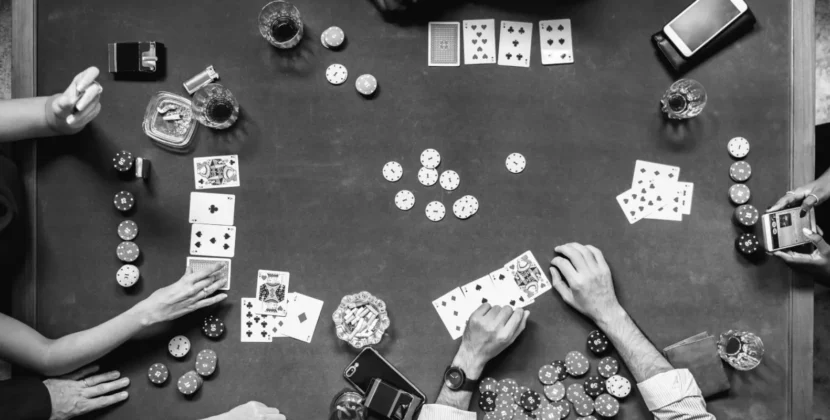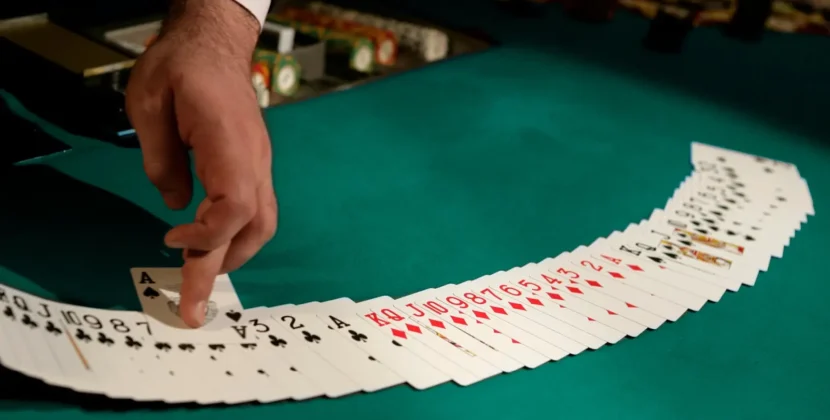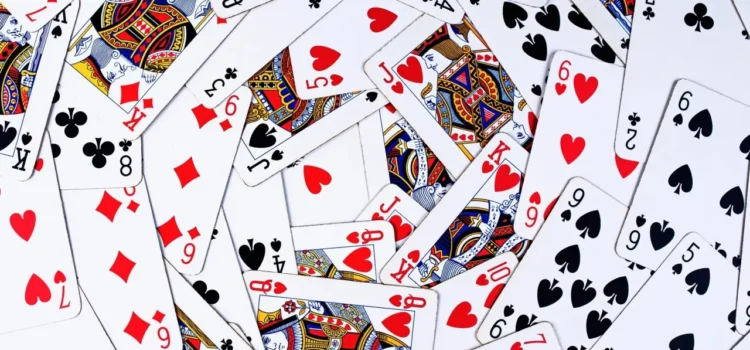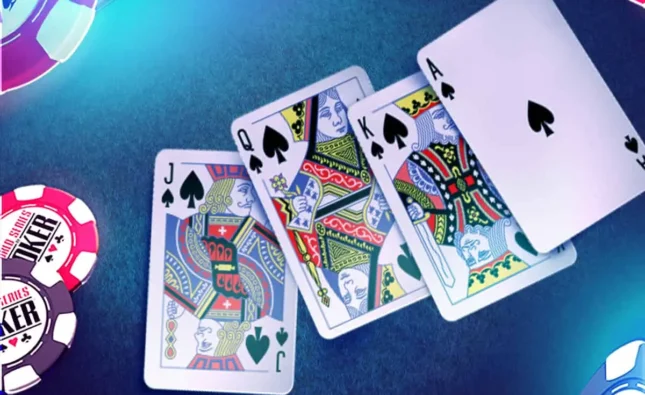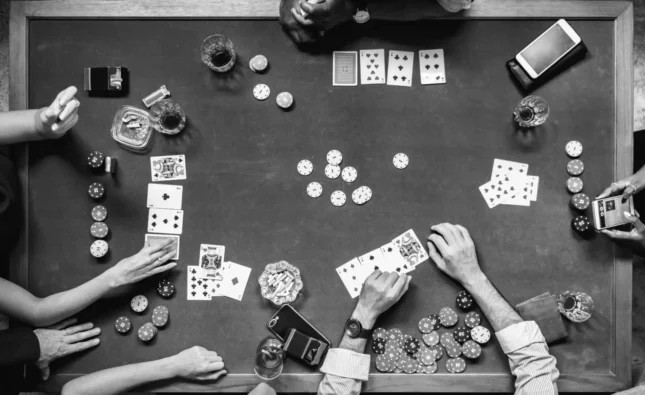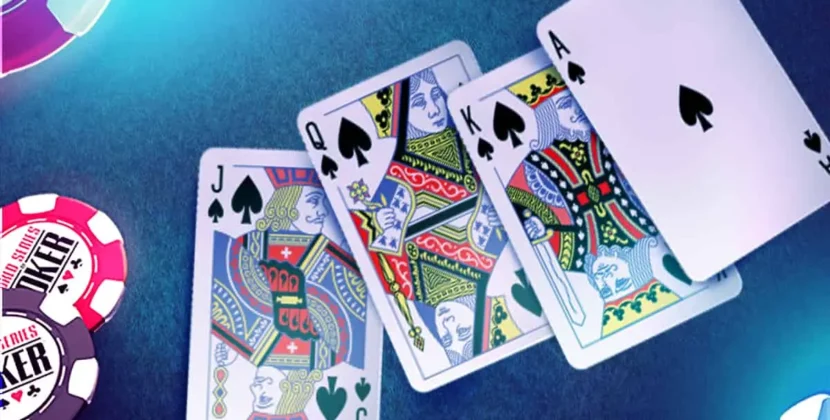
Share:
Poker is a game known worldwide for its strategic depth, thrilling suspense, and the allure of big wins and high-stakes drama. Though it dates back centuries, the game continues to play an essential role in contemporary pop culture, influencing everything from movies to music and language. Even those who have never sat at a poker table are familiar with its terminology, its iconic scenes, and its reputation as the game where fortune can change in the blink of an eye. This article explores how poker has deeply ingrained itself in pop culture and the lasting impact it has had on films, television, language, music, and beyond.
The Origins and Evolution of Poker
While the modern game of poker originated in the early 19th century, its roots extend much further back in time. It is often believed that poker evolved from a domino game played by the Chinese Emperor Mu-tsung around 969 A.D. Over the centuries, the game developed as it spread through various cultures, including Persia, France, and Germany, each contributing its own variations. By the time it reached the United States, particularly along the Mississippi River, poker began to take on its familiar form, with strategies, bluffing, and betting playing integral roles. Today, poker is played both in-person at casinos and virtually on online platforms, further widening its appeal and accessibility.
Due to its enduring popularity, poker has infiltrated every aspect of modern life, including pop culture. Whether through high-stakes films, iconic television moments, or poker-inspired songs, the game’s imagery and language are deeply woven into our collective consciousness.
Poker in Movies and Television: The High Stakes Drama
One of the most noticeable ways poker has influenced pop culture is through its portrayal in movies and television. Poker scenes often serve as metaphors for larger themes of risk, deception, and high-stakes competition. These portrayals have introduced the game to millions, making poker synonymous with glamour, danger, and strategy.
Maverick (1994)
The film Maverick is one of the most notable poker-themed movies from the 1990s. Starring Mel Gibson as a con artist named Bret Maverick, the movie revolves around his efforts to participate in a high-stakes poker game. The plot mixes humor, action, and poker strategy, with the game serving as the focal point for the story. Gibson’s character must navigate deception, bluffing, and personal rivalries to earn a spot at the poker table. Maverick made poker thrilling for mainstream audiences and demonstrated the game’s appeal as a centerpiece of action and suspense.
Molly’s Game (2017)
Another film where poker takes center stage is Molly’s Game, which tells the true story of Molly Bloom, a former Olympic skier who organized high-stakes poker games for Hollywood celebrities, business moguls, and even members of the mafia. Directed by Aaron Sorkin and starring Jessica Chastain, the movie focuses on Bloom’s rise to power in the underground poker scene and her subsequent legal troubles when her games attract the attention of the FBI. The film is as much about the personalities who frequent the poker tables as it is about the game itself, showcasing how poker can symbolize the darker side of fame, wealth, and ambition.
Casino Royale (2006)
No discussion of poker in film would be complete without mentioning Casino Royale, the James Bond movie that featured a high-stakes poker game as a pivotal part of the plot. While the literary Bond favored baccarat, the cinematic Bond, played by Daniel Craig, is portrayed as a master of poker. In a tense, life-or-death game against villain Le Chiffre, Bond’s calm demeanor and poker prowess become key to thwarting the antagonist’s criminal plans. The film elevated poker to the status of a highbrow, sophisticated game, perfectly in line with the glamorous and dangerous world of espionage that defines the Bond franchise.
Casino (1995)
Directed by Martin Scorsese, Casino is another iconic film that prominently features poker. Set in the world of 1970s Las Vegas, the film stars Robert De Niro as a mobster who runs a casino and Joe Pesci as his violent enforcer. Poker is depicted not only as a form of entertainment but also as a means of business manipulation, with the mob using the game as a tool for control. Casino is renowned for its accurate depiction of poker games, offering a gritty portrayal of Las Vegas’s high-stakes gambling world and its relationship with organized crime.
Poker’s prominence in films is no accident. The game’s themes—deception, tension, and the potential for large rewards—lend themselves perfectly to cinematic storytelling. Whether it’s the high-stakes gambling of Casino Royale, the criminal underworld of Casino, or the comedic capers in Maverick, poker remains a compelling subject for filmmakers due to its ability to encapsulate risk, strategy, and human drama.
Poker Terminology in Everyday Language
Poker has not only influenced entertainment but also language. Many common phrases and idioms originate from poker, making it a significant part of our everyday speech. These expressions have transcended the game itself, often being used in broader contexts to describe life situations, strategies, and personal interactions.
“When the chips are down”
The phrase “when the chips are down” refers to moments when a person faces a critical or decisive situation. In poker, the chips represent money or stakes, and when they are down, the player has committed their resources and is forced to make critical decisions. This expression is used in everyday speech to describe high-pressure moments in various aspects of life, from business negotiations to personal dilemmas.
“An ace in the hole”
This phrase refers to having a hidden advantage or a secret weapon. In poker, an “ace in the hole” is a card that is kept hidden from the other players, offering the holder a distinct advantage. When used in everyday language, it can describe any advantage a person has over others, whether in a competition or negotiation.
“Call someone’s bluff”
Bluffing is one of poker’s most iconic strategies, where a player pretends to have a better hand than they actually do in order to deceive opponents. The phrase “calling someone’s bluff” refers to challenging someone’s false confidence or claims. In popular culture, this expression is often used in situations where someone’s bold statement or behavior is tested to determine if they can back it up.
“Playing your cards right”
This expression is used when someone is making smart decisions or taking the right actions at the right time. In poker, “playing your cards right” means making strategic bets and knowing when to fold or raise. It’s a versatile phrase applicable to life situations that require careful decision-making.
These expressions have embedded themselves in daily conversations, often used by people who may not even play poker. They demonstrate how deeply poker’s vocabulary has infiltrated popular culture and everyday life.
Poker in Music: A Cultural Symbol
Beyond films and language, poker has also made its mark in the music industry. The game’s themes of risk, chance, and fortune resonate with many songwriters, and poker references can be found across genres, from country music to rock and pop.
Kenny Rogers – The Gambler
One of the most famous poker-related songs is Kenny Rogers’ The Gambler. Released in 1978, the song tells the story of a seasoned gambler imparting his wisdom to a fellow traveler. The lyrics are filled with poker references, such as “You’ve got to know when to hold ’em, know when to fold ’em,” encapsulating the themes of decision-making, risk, and strategy that poker represents. The song has become a cultural touchstone, often referenced when discussing gambling or risk-taking.
Lady Gaga – Poker Face
In more recent years, Lady Gaga’s hit single Poker Face has further cemented the game’s place in popular culture. The song’s lyrics use poker terminology to describe a love affair where the protagonist tries to conceal their emotions, just as a poker player hides their hand. The phrase “poker face” has become synonymous with maintaining an unreadable or emotionless expression, particularly in high-pressure situations.
The Eagles – Desperado
Although not explicitly about poker, The Eagles’ Desperado evokes themes of risk and chance that are central to poker. The song tells the story of a man who takes dangerous risks, living life on the edge. The idea of gambling with one’s future resonates with the risk-laden world of poker, where each decision could lead to victory or defeat.
Motorhead – Ace of Spades
Motorhead’s Ace of Spades is another rock anthem that references poker. The “ace of spades” is one of the most powerful cards in a poker deck, and the song uses it as a symbol of living life on the edge, embracing risk, and taking chances. The imagery of the ace of spades aligns with the punk rock ethos of defiance and rebellion.
Elvis Presley – Viva Las Vegas
Elvis Presley’s Viva Las Vegas is synonymous with the glamour and excitement of the casino world. The song celebrates the thrill of the gambling capital of the world, with references to poker and other casino games. It has become an anthem for those who love the energy and high stakes of Las Vegas.
Conclusion: Poker’s Everlasting Presence in Pop Culture
Poker’s influence on popular culture is undeniable. From its portrayal in films and television shows to its pervasive terminology in everyday language and its presence in music, poker has embedded itself into the cultural fabric of society. The game’s themes of strategy, bluffing, risk, and fortune continue to captivate people across the globe, making it more than just a card game—it’s a symbol of human behavior, decision-making, and the pursuit of victory against the odds.
Poker’s ability to transcend its origins and remain relevant in the entertainment world ensures its place in popular culture for years to come. Whether it’s a tense showdown at a poker table in a blockbuster movie, a metaphor in a hit song, or a phrase in everyday conversation, poker’s enduring influence remains a testament to the game’s universal appeal and its ability to capture the imagination of millions.

